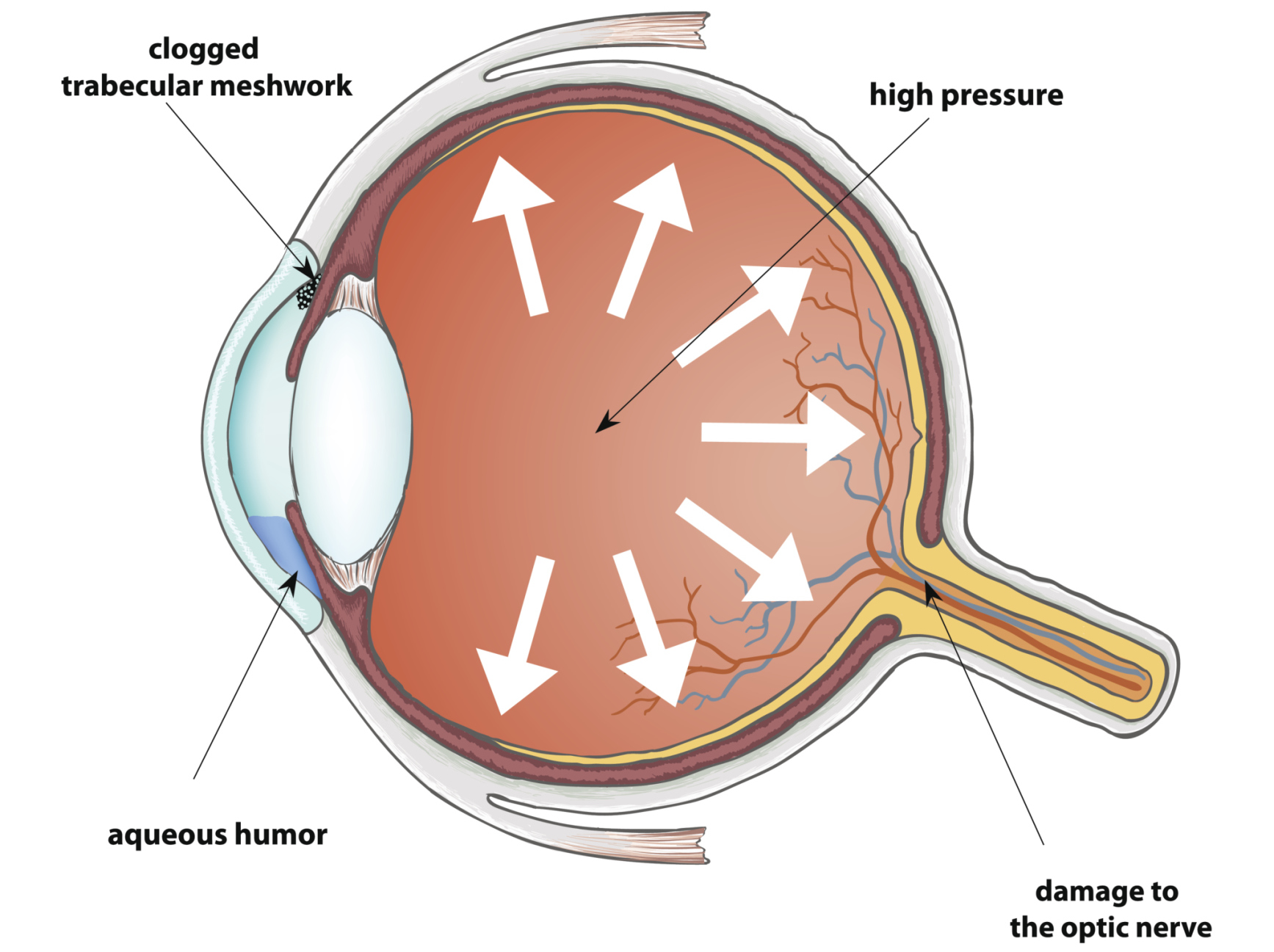GLAUCOMA AT THE EYE TEAM
Glaucoma is a condition which can affect sight, usually due to build up of pressure within the eye.
Glaucoma often affects both eyes, usually to varying degrees. One eye may develop glaucoma quicker than the other.
The eyeball contains a fluid called aqueous humour which is constantly produced by the eye, with any excess drained through tubes.
Glaucoma develops when the fluid cannot drain properly and pressure builds up, known as intraocular pressure.
This can damage the optic nerve (which connects the eye to the brain) and the nerve fibres from the retina (the light-sensitive nerve tissue that lines the back of the eye).

THERE ARE FOUR MAIN TYPES OF GLAUCOMA
Chronic Open-Angle Glaucoma
This is the most common type of glaucoma and develops very slowly.
Primary Angle-Closure Glaucoma
This is rare and can occur slowly (chronic) or may develop rapidly (acute) with a sudden, painful build-up of pressure in the eye.
Secondary
Glaucoma
This mainly occurs as a result of an eye injury or another eye condition, such as uveitis (inflammation of the middle layer of the eye)
Developmental
Glaucoma
(congenital glaucoma)
A rare but sometimes serious type of glaucoma which occurs in very young children, caused by an abnormality of the eye.
Glaucoma can be treated with eye drops, laser treatment or surgery. But early diagnosis is important because any damage to the eyes cannot be reversed. Treatment aims to control the condition and minimise future damage.
IF LEFT UNTREATED, GLAUCOMA CAN CAUSE VISUAL IMPAIRMENT. BUT IF IT IS DIAGNOSED AND TREATED EARLY ENOUGH, FURTHER DAMAGE TO VISION CAN BE PREVENTED.
There are several glaucoma tests that can be carried out by David. They are painless and quite quick. An eye pressure test and an examination of the optic disc as well as a field test are performed on those patients suspected of being at risk of glaucoma.
As Glaucoma can be hereditary you are entitled to a free NHS eye test if you are over 40 years old and have a first-degree relative (mother, father, sister or brother) with glaucoma. You may also be entitled to a free NHS eye test if an ophthalmologist thinks you are at risk of developing glaucoma.

